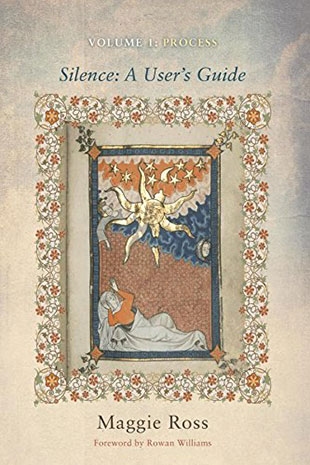"The human race is sleepwalking into extinction. If we are not to destroy our beautiful planet and ourselves with it, then we must learn to live more simply, more carefully, more joyfully. If religion is to be a viable catalyst for this way of living, then it must recover the work of silence." So writes Maggie Ross, an Anglican solitary who lives in Oxford, England.
In a chapter on language about silence, the author points out that the work of silence is about self-emptying, not self-gratification. She admits that this spiritual practice does "not admit evaluation, expectation, or measure." She continues with a discussion of misused vocabulary about silence and the interior life.
Ross moves on to a consideration of the relationship between silence, ways of knowing, and integration into ecology. Displaying great insight, Ross covers the passage of this spiritual practice from the desert fathers and mothers to the present day.
In the chapter on "Living Silence," the author hits high stride:
"To do the work of silence — simply to become silent and to receive the gifts silence has to give — transfigures lives. . . . for the Christian, the gospel norms will come alive in all their paradoxical wonder such as 'you must lose your life to gain it.' The work of silence reveals the reality of such a saying as attention has shifted away from all the noise and artificiality of the surrounding culture, toward the reality and beauty of darkness, unknowing, and beholding that enables a person to receive life afresh, newly created in each moment."
For Ross, Jesus is both the paradigm and parable of silence. She drops a slogan for us to use: "The Ethics of Silence is Green." And then she wishes us an abundant life lived from the wellspring of silence.
